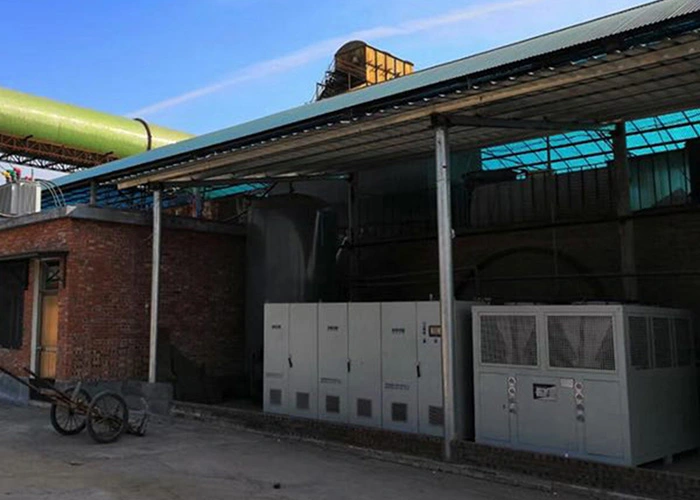
HVAC chillers circulate cooling water to cool buildings and factories. Water from the chiller is pumped to the air handling unit to cool the building or machinery. Large commercial buildings, hospitals, industries, data centers, and other places with strict temperature and air quality restrictions employ HVAC chillers. They improve energy efficiency and comfort in modern buildings as refrigeration components.
Chillers play a fundamental role in HVAC (heating, ventilation, and air conditioning) systems and are key equipment for providing effective cooling and environmental conditioning. In contemporary structures and industrial establishments, the objective of HVAC systems is to ensure comfort and health within the indoor environment, with chillers serving as a crucial component in realizing this objective. Chillers cool water or glycol solutions and distribute them to various terminal devices within the air conditioning system, such as fan coils and air handling units, to absorb interior heat and lower room temperature, thus establishing a conducive indoor climate.
The utilization of chillers in HVAC systems extends beyond refrigeration; it is also essential for energy conservation and operational efficacy. The system utilizes chillers to efficiently satisfy the cooling requirements of various sections and levels in large buildings, thereby minimizing the complexity and energy inefficiency associated with employing several individual air conditioning units. The centralized cooling solution offered by chillers enhances system stability and reliability while simultaneously decreasing maintenance expenses and optimizing operating efficiency.
Chillers indirectly contribute to the regulation of indoor air quality. Consistent cooling effects preserve the equilibrium of temperature and humidity inside the air conditioning system, preventing excessive dryness or humidity and therefore fostering a healthy and comfortable living and working environment. Moreover, in industrial settings such as data centers, pharmaceutical facilities, and food processing plants, the temperature control specifications for HVAC systems are exceptionally stringent. Chillers, by their accurate temperature regulation, guarantee the safety of these conditions and the continuity of production.
Chillers are crucial to HVAC systems, serving both refrigeration purposes and promoting sustainable growth. The energy-efficient design of contemporary chillers and the use of eco-friendly refrigerants can markedly diminish energy usage and environmental effects, aligning with the trend towards green building development. The high efficiency of chillers simultaneously enhances the value of HVAC systems in terms of energy cost management and operational efficiency. Chillers, as essential components of HVAC systems, offer technical assistance for environmental comfort while significantly contributing to carbon footprint reduction and the promotion of energy conservation and emission mitigation.



